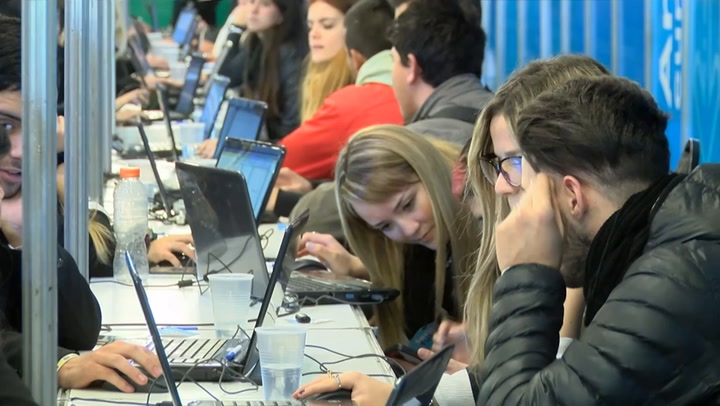

41 per cent of employers intend to reduce their workforce as AI automates certain tasks, a World Economic Forum (WEF) survey showed on Wednesday.
Of the hundreds of large companies surveyed around the world, 77 per cent also said they planned to retrain and upskill their existing workers between 2025 and 2030 to work better alongside AI, according to findings published in the WEF's Future of Jobs Report.
But unlike the previous edition, for 2023, this year’s report did not say that most technologies, including AI, were expected to be “a net positive” for employment numbers.
“Advances in AI and renewable energy are reshaping the (job) market, driving an increase in demand for many technologies or specialized positions while driving a decline for others, such as graphic designers,” the WEF said in a press release ahead of its annual meeting in Davos later this month.
In the wide-ranging report, Saadia Zahidi, the forum’s director general, highlighted the role of generative AI in reconfiguring industries and tasks across sectors. The technology can create original text, images and other content in response to user input.
Postal service employees, executive secretaries and payroll clerks are among the jobs that employers expect to see the fastest decline in numbers in the coming years, whether due to the spread of AI or other trends.
“The presence of graphic designers and legal secretaries just outside the top 10 jobs in decline — a first-time prediction not seen in previous editions of the Future of Jobs Report — may illustrate GenAI’s growing ability to perform knowledge work,” the report said.
In contrast, AI skills are increasingly in demand. Nearly 70 per cent of companies plan to hire new workers with skills to design AI tools and enhancements, and 62 per cent intend to hire more people with skills to work better alongside AI, according to the latest survey, conducted last year.
On an optimistic note, the report states that the main impact of technologies such as generative AI on jobs could lie in their potential to “augment” human skills through “human-machine collaboration,” rather than in direct replacement, “particularly given the continued importance of human-centered skills.”
However, many workers have already been replaced by AI.
In recent years, some tech companies, including file storage service Dropbox and language learning app Duolingo, have cited AI as a reason for layoffs.
Related News

Digicel Foundation brings holiday cheer to special needs children

Coconut board brightens Christmas for farmers in St Mary, St Thomas

Pistol seized in St Mary, one man in custody


